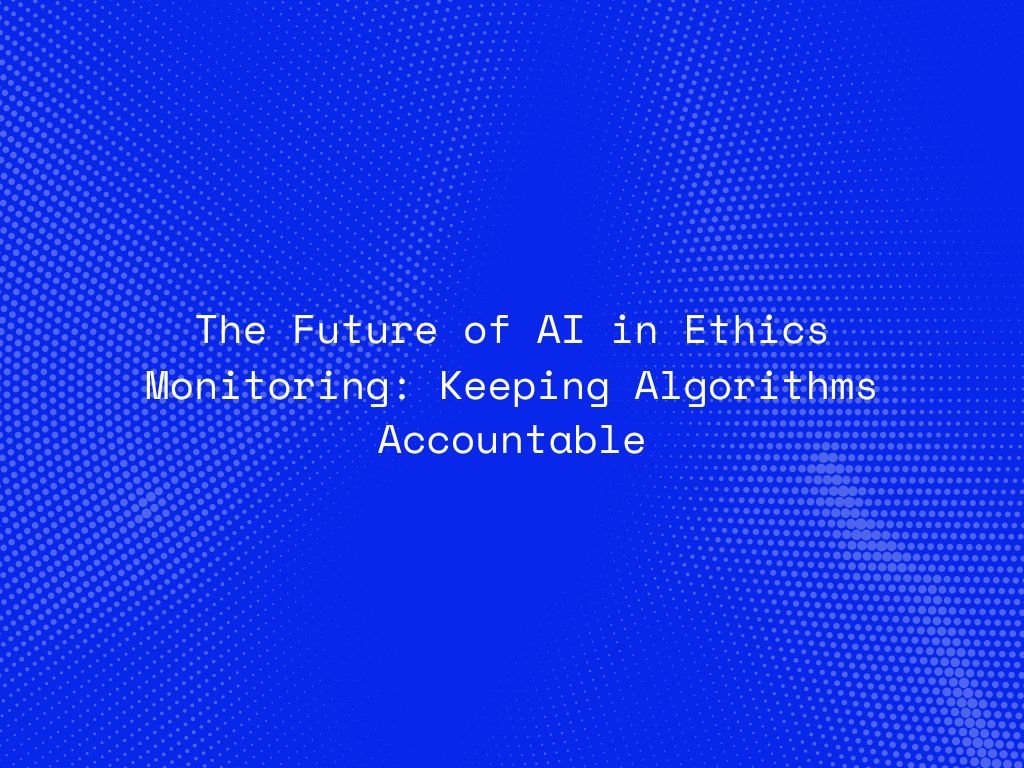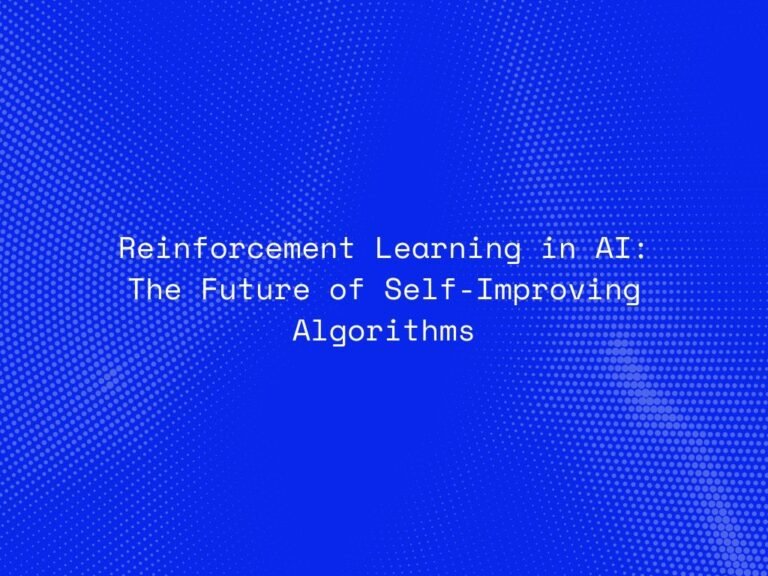As Artificial Intelligence (AI) continues to shape industries and influence human decision-making, the question of accountability has become central. Algorithms now determine what we see online, how we receive healthcare, and even whether we qualify for financial assistance. With such power comes immense responsibility—and growing concern over fairness, bias, and transparency.
To address these challenges, AI-driven ethics monitoring systems are emerging as a new frontier in responsible technology governance. These systems not only detect and mitigate bias in algorithms but also ensure that AI operates within ethical, legal, and societal boundaries. The future of AI, it seems, will depend as much on its ability to regulate itself as on its capacity to innovate.
The Growing Need for Ethical Oversight in AI
AI models are increasingly embedded in critical decision-making processes—hiring, lending, criminal justice, healthcare diagnosis, and beyond. However, many of these models have shown biases stemming from skewed training data or opaque design. For instance, facial recognition systems have been criticized for disproportionately misidentifying people of color, while recruitment algorithms have exhibited gender bias in candidate screening.
As AI systems become more autonomous and complex, manual oversight becomes insufficient. The need for automated ethics monitoring—AI systems that evaluate and audit other AI systems—is now at the forefront of technological governance.
AI for Ethical AI: How Monitoring Works
AI ethics monitoring involves using machine learning and statistical analysis to continuously assess an algorithm’s decisions, performance, and outcomes against established ethical guidelines. These systems track indicators such as fairness, bias, explainability, and compliance.
For example, an ethics monitoring system might analyze decision logs from a financial AI model to detect patterns of discrimination or inequality in loan approvals. It can then flag these anomalies in real time, prompting human auditors to review and adjust the system accordingly.
This approach moves beyond static testing to dynamic accountability, ensuring that AI remains aligned with ethical standards even as it evolves.
Core Components of AI Ethics Monitoring
-
Bias Detection and Mitigation:
AI monitors identify hidden biases by analyzing outcomes across demographic groups and applying fairness metrics. When bias is detected, algorithms can be retrained or recalibrated using more balanced datasets. -
Explainability Audits:
Black-box models, especially deep learning networks, often lack interpretability. Ethics monitoring systems use explainable AI (XAI) techniques to make model decisions transparent and traceable, allowing organizations to justify outcomes. -
Accountability Tracking:
These systems maintain detailed logs of AI decisions, enabling traceability and compliance with emerging regulations like the EU’s AI Act or U.S. AI Bill of Rights. -
Continuous Learning and Governance:
Ethical monitoring isn’t a one-time process—it’s an ongoing cycle. AI models are continuously evaluated and updated as they interact with new data, ensuring ethical alignment over time.
Enterprise Adoption and Strategic Value
For enterprises, integrating AI ethics monitoring delivers both compliance and competitive advantage. As AI regulation expands globally, organizations that proactively embed ethical safeguards will not only avoid legal risks but also strengthen stakeholder trust.
In industries like finance, healthcare, and education—where fairness and transparency are paramount—AI monitoring systems can demonstrate due diligence and reinforce brand integrity. Moreover, ethical AI practices attract customers, partners, and investors who value accountability and social responsibility in technology-driven operations.
Challenges in Implementing AI Ethics Monitoring
Despite its promise, AI ethics monitoring faces several hurdles:
-
Defining Universal Ethical Standards: What constitutes fairness or accountability can vary across cultures and industries.
-
Technical Complexity: Building monitoring systems capable of understanding complex neural architectures remains a major research challenge.
-
Human Oversight: While automated monitoring improves efficiency, human judgment remains essential in interpreting results and determining ethical context.
-
Data Privacy: Ethics monitoring itself must comply with privacy laws, ensuring that audits do not expose sensitive information.
Overcoming these challenges requires collaboration between ethicists, data scientists, legal experts, and policymakers to establish clear governance frameworks.
The Future: Toward Self-Regulating AI Ecosystems
In the coming decade, AI ethics monitoring will evolve from reactive oversight to proactive governance. Future systems may be capable of self-auditing—where AI models autonomously identify and correct ethical deviations before deployment.
We may also see the rise of regulatory AI agents, embedded within enterprise workflows, ensuring compliance with ethical standards in real time. These agents could act as “digital ethics officers,” continuously auditing algorithms across departments and ecosystems.
Furthermore, blockchain and distributed ledger technologies may play a key role in ensuring transparency and immutability in AI decision logs, building public trust in automated governance systems.
Conclusion
As AI becomes integral to global infrastructure, ethical monitoring is no longer optional—it is essential. The future of AI depends not only on how intelligent machines become, but on how responsibly they act.
By developing robust ethics monitoring systems, organizations can ensure that their algorithms remain fair, transparent, and accountable. In doing so, they don’t just build better AI—they build better systems of trust, equity, and governance for a digital future.




